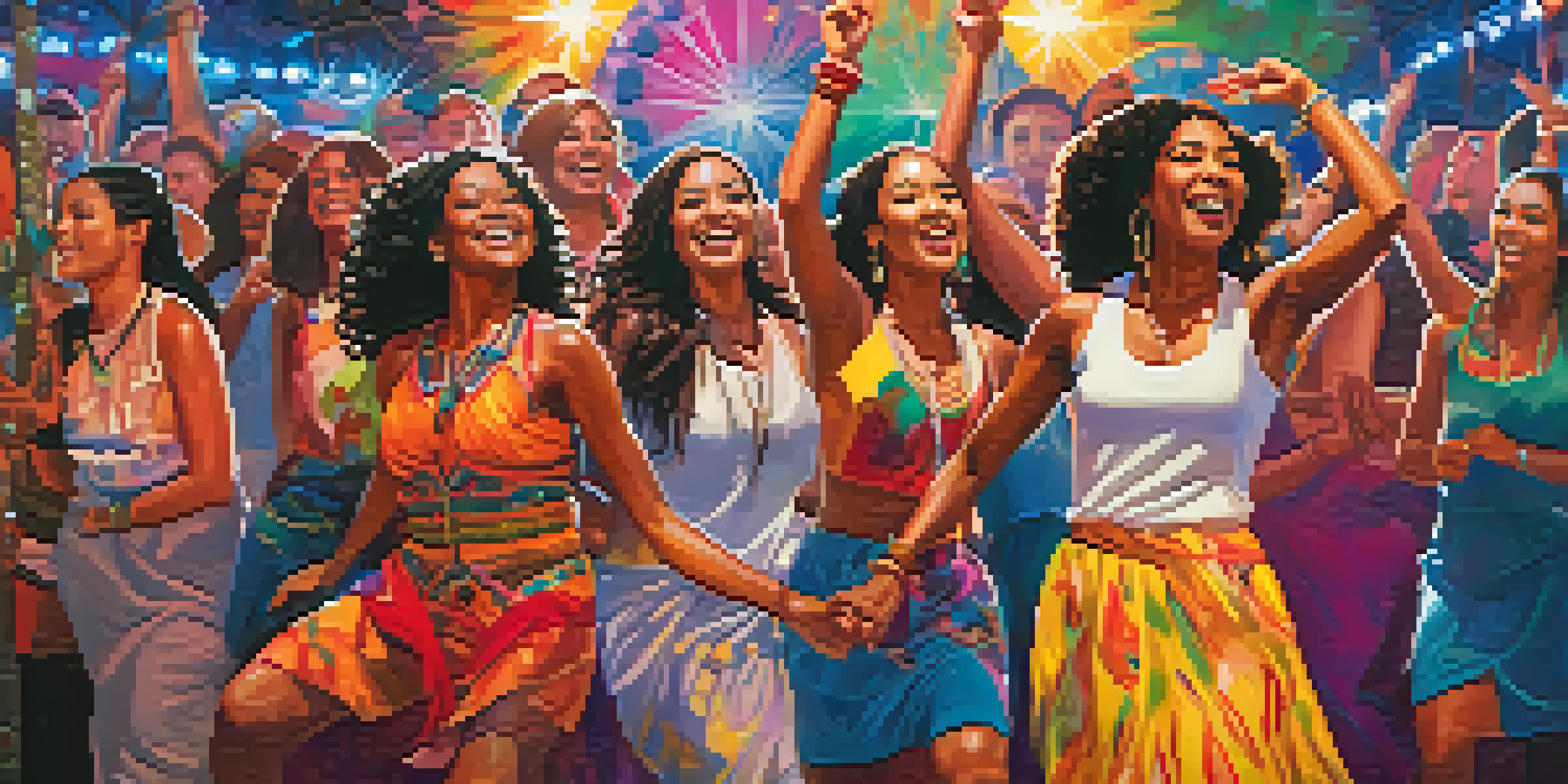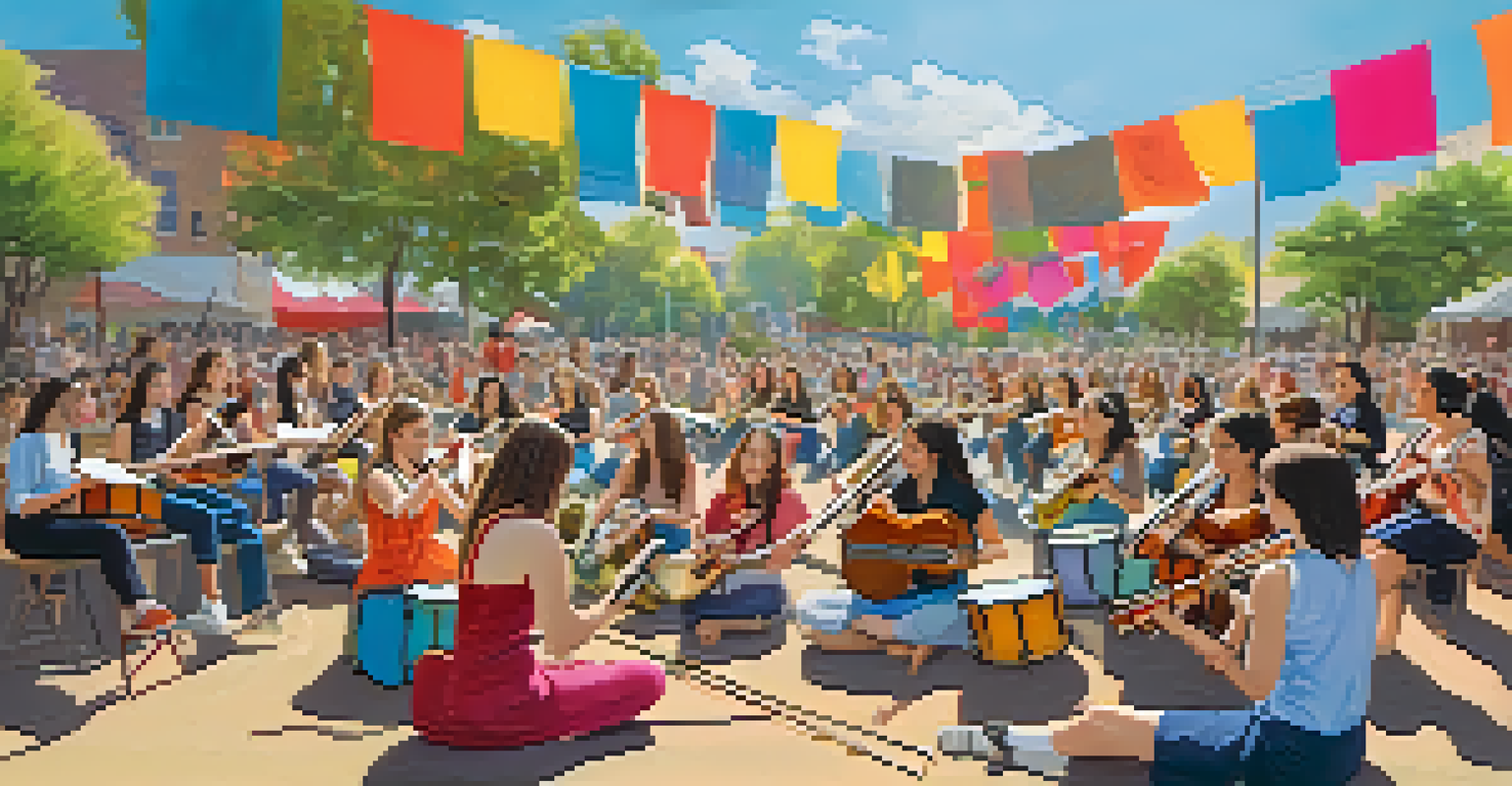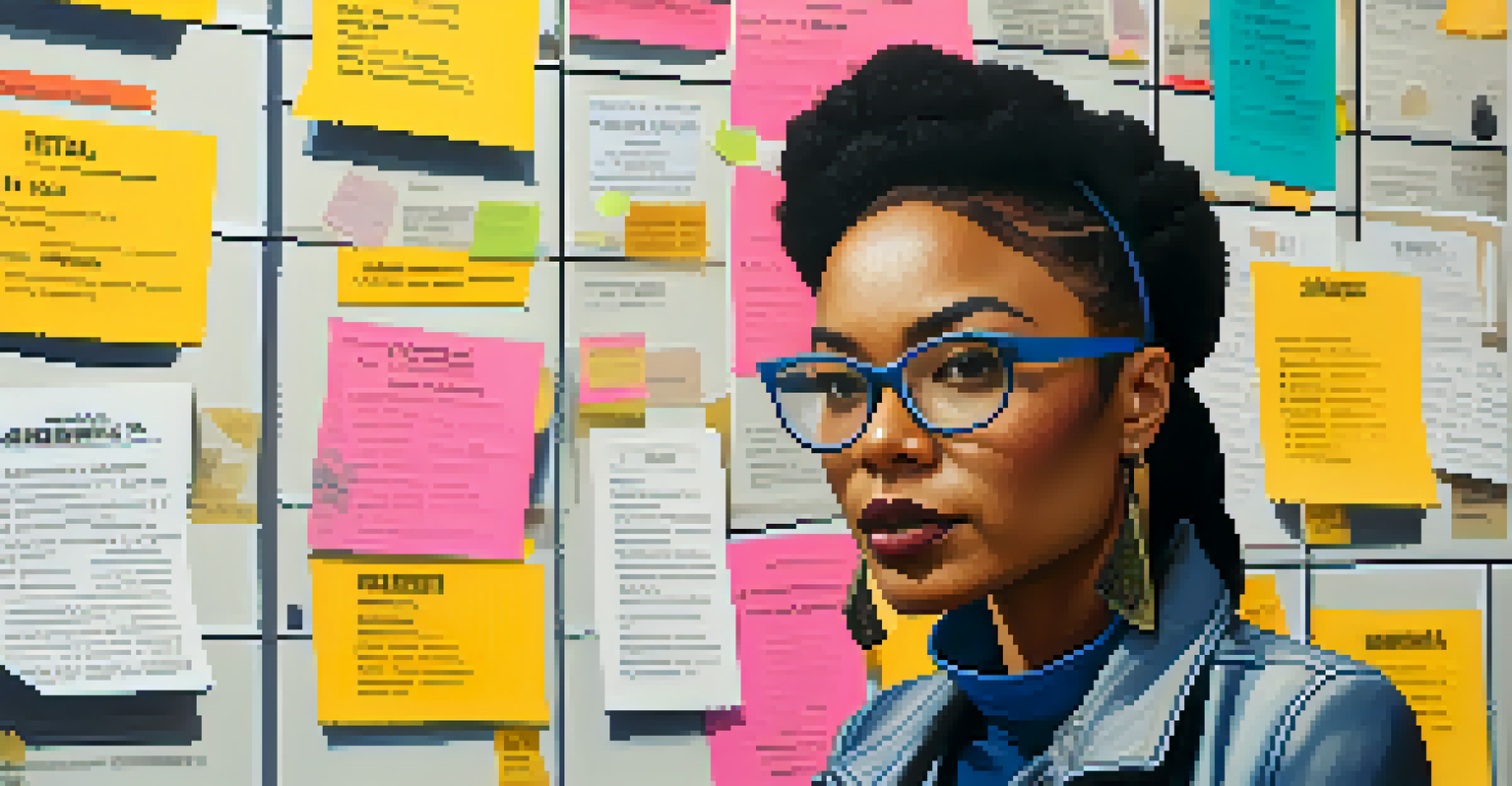The Importance of Women in Music Festivals Worldwide

Women as Pioneers in Music Festival Culture
Women have always been at the forefront of music festivals, driving change and innovation. From legendary performers like Janis Joplin to contemporary icons like Beyoncé, female artists have redefined what it means to take the stage. Their unique perspectives and powerful voices contribute to the creative landscape of music festivals, inspiring generations to come.
Women are the largest untapped reservoir of talent in the world.
Not only do these women perform, but many also curate festivals, ensuring that female talent is represented. Events like the all-female festival 'SheFest' showcase emerging artists, proving that women are not just participants but leaders in the music scene. This shift is vital for fostering diversity and encouraging inclusivity within the industry.
Moreover, the presence of women in music festivals challenges stereotypes and promotes equality. As more women take charge, they break down barriers, setting a precedent for future generations of female musicians and festival organizers alike. This evolution is a testament to their resilience and passion for music.
The Growing Representation of Female Artists
Over the years, the representation of female artists at music festivals has significantly increased. Festivals like Coachella and Glastonbury have made strides toward gender parity, with headliners now more often including women. This not only boosts female visibility but also encourages young girls to pursue careers in music.

For example, the rise of female-led bands and solo acts is reshaping the musical landscape. Artists like Haim and Lizzo are not just performers; they are role models, showing that women can excel in a traditionally male-dominated industry. Their stories resonate with audiences, proving that talent knows no gender.
Women Lead in Music Festivals
Female artists are not only performers but also influential curators and organizers, shaping the festival landscape and promoting inclusivity.
However, there's still work to be done. While progress is evident, the push for equal representation continues, advocating for more female performers across all genres. The ongoing dialogue about gender balance at festivals is crucial for sustaining this positive trend.
Women as Influencers and Festival Curators
Beyond performing, women are making waves as festival curators and organizers. Their insights and experiences shape the festival experience, from line-up choices to the overall atmosphere. Festivals like 'Girlschool' celebrate female creativity, showcasing artists across various genres.
There's a lot of power in being a woman right now, and I think that power is coming from our unity and support for one another.
These women not only contribute to the festival's success but also foster community and support networks among female artists. By creating spaces where women can thrive, they promote collaboration and mentorship, strengthening the industry as a whole. This empowerment is essential for future generations of female musicians.
Moreover, female curators often prioritize inclusivity, ensuring diverse voices are heard. Their commitment to representation transforms music festivals into platforms for social change, drawing attention to issues like gender equality and mental health awareness.
The Role of Female Fans and Community Builders
Women are not just creators in the music festival space; they are also passionate fans and community builders. Their involvement enhances the overall festival experience, fostering connections among attendees. Many women take on roles as volunteers or organizers, helping to create a welcoming atmosphere.
For instance, initiatives like 'Women in Music' encourage female fans to actively participate and share their love for music. This sense of community empowers women to support each other, whether through attending concerts together or collaborating on projects. Such bonds enrich the festival experience, making it more memorable.
Increasing Female Representation
The representation of women at music festivals has grown, inspiring young girls to pursue careers in music and challenging gender stereotypes.
Additionally, female fans often advocate for change, pushing for more diverse line-ups and better safety measures at events. Their voices are crucial in shaping the culture of music festivals, ensuring that they remain inclusive and enjoyable for everyone.
Highlighting Women in Diverse Music Genres
Women have made significant contributions across various music genres, from rock to hip-hop. Festivals now spotlight these women, showcasing their talent and creativity. Events like 'Women Who Rock' celebrate female musicians across genres, breaking down barriers and stereotypes.
This diversity allows for a richer festival experience, as attendees can explore different musical styles and cultures. Female artists like Billie Eilish and Shakira demonstrate that women can excel in any genre, paving the way for others to follow. Their success stories inspire new artists to express themselves authentically.
Furthermore, highlighting women in diverse genres promotes cultural appreciation and understanding. It encourages audiences to embrace different perspectives, enriching the overall music festival experience and fostering a sense of unity.
The Empowerment of Women Through Music Education
Music education plays a vital role in empowering women in the industry. Festivals often feature workshops and panels aimed at educating aspiring female musicians. These programs help bridge the gap, providing essential skills and knowledge for success in a competitive field.
For example, initiatives like 'Girls Rock Camp' focus on teaching young girls how to play instruments and write songs. By nurturing their talents, these programs build confidence and self-esteem, encouraging them to pursue their musical dreams. The impact of such education can be seen at festivals, where talented young women take the stage.
Community and Support Among Women
Women in music festivals foster a sense of community, empowering each other through collaboration, advocacy, and shared experiences.
Moreover, music education fosters a sense of community among female musicians. By sharing experiences and learning from one another, women can cultivate lasting relationships that support their growth in the industry. This empowerment is crucial for creating a more equitable music landscape.
Challenges Faced by Women in Music Festivals
Despite the progress made, women still face numerous challenges in the music festival scene. Issues such as gender bias and unequal pay persist, creating obstacles for female performers. Festivals must acknowledge these challenges and work towards creating a more equitable environment for all artists.
For instance, many women report feeling marginalized or underrepresented in line-ups. This lack of visibility can discourage emerging artists from pursuing their dreams. By addressing these issues head-on, festivals can foster a culture of inclusivity and respect.

Additionally, safety concerns at festivals disproportionately affect women. Ensuring safe spaces for all attendees is crucial for a positive experience. By implementing measures to protect women, festivals can create environments where everyone feels valued and respected.